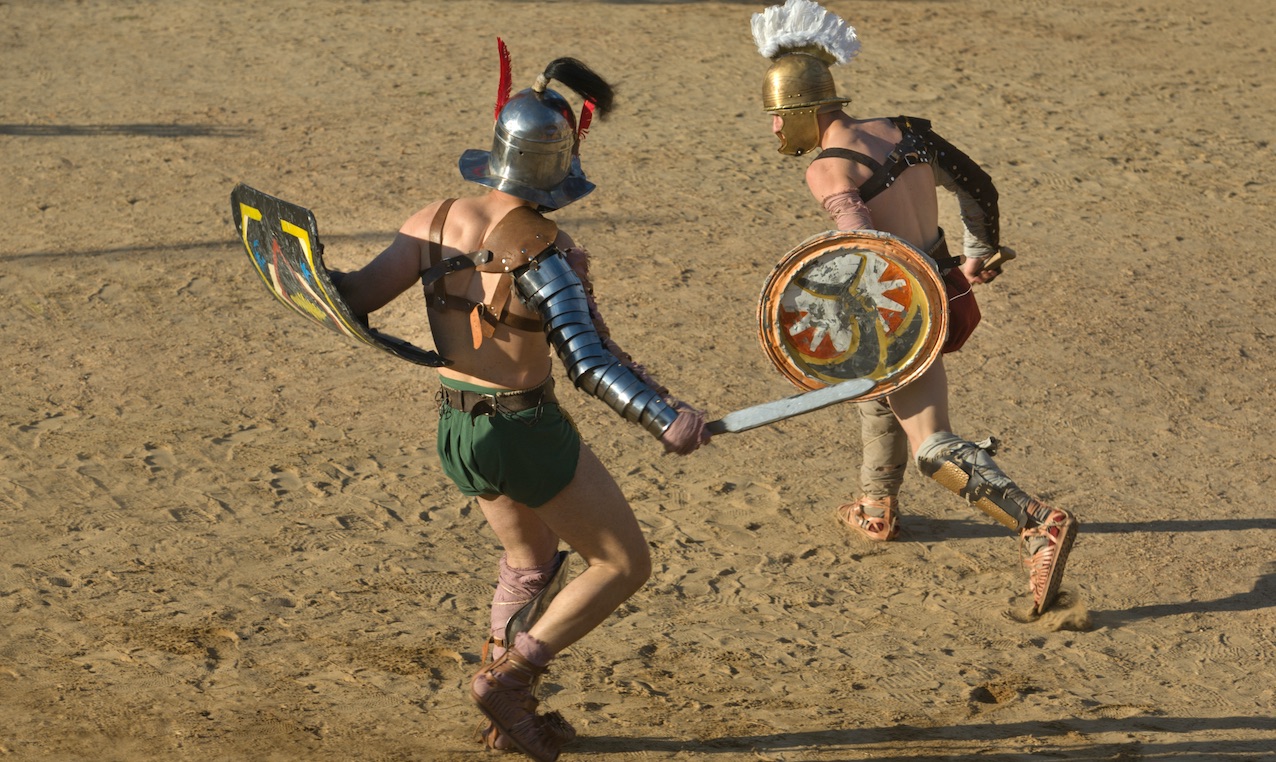For friends of Alessandro Barbero or other historians everything is easy. Do you have a doubt about the date of a battle, the name of a leader or the political order of a remote country? Not bad: you pick up the phone, call the professional on duty and the problem is solved.
But for everyone else, we often return in thought to certain historical periods, filling the gaps in culture with our imagination. Yet not all eras seem to interest us in the same way.
The Roman Empire goes crazy on TikTok. In what sense? In the sense that something curious is happening. And, perhaps, emblematic. It seems that the Roman Empire haunts many men, where men should be understood as synonymous not with people but with males.
Let’s try to see more clearly.

TikTok and the Roman Empire
In the last few hours, on TikTok, the hashtags relating to the Roman Empire, primarily #romanempire, are having millions of views.
And a curious (and, as we will see, not without profound explanations) gender controversy has arisen. Because it is mostly women who post images and videos in large quantities. In which they ask themselves, or rather ask their partners, how much they think of the Roman Empire.
It’s difficult to say when, how and why the trend was born. But certainly, as happens on social media, it has now spread like wildfire. And it is no longer possible to distinguish those who ask the question driven (or, better, driven) by authentic curiosity, and those who ask the question to follow the wave.
Gaius Flavius and the obsession with ancient Rome
There are those who, like the Washington Post, have also theorized what the origin of the catchphrase could be.
According to the US newspaper everything could have arisen from the profile of a content creator with an eloquent stage name, Gaius Flavius, who posts funny videos on the Roman Empire.
In a recent video, the self-styled Gaius Flavius addressed women by asking: “Many of you don’t understand how often men think about the Roman Empire. Ask your husband/boyfriend/father/brother – you will be surprised by their answers.”
The video has exceeded 2 million views. And, according to the content creator, it was published after the thirty-two-year-old Dutch Artur Hulu (this is his real name) noticed a noticeable difference in percentage of interest – based on active participation in his posts on the topic – between men and women.
Men and the Roman Empire
The initial intuition, whether it was the work of Artur Hulu or others, has certainly been gathered.
Not only by TikTok users, who continue to question their classmates, relatives and friends about their possible passion for imperial Rome. But also by the “interviewees” themselves, who often reveal an authentic and profound interest in one or more aspects of ancient Roman times.
At this point it is inevitable to ask: why?
A possible reason for so much interest
The reason for so much male interest in the Roman Empire, photographed by TikTok, is suggested by Gaius Flavius himself. Which he says how imperial Roman society was “strongly dominated by men”.
It is an explanation also supported by several historians. Which make a more complex reasoning: the more masculine (and chauvinistic) aspects of imperial Rome have been emphasized over the centuries, also because Roman scholars have often been men.
This is the reflection made by Hannah Cornwell, historian from the University of Birmingham, interviewed by the Washington Post. Cornwell cited “the Roman legion, the imperial eagle, the gladiators: all elements that are associated with virility and power”. But she added that the aspects of the Roman Empire linked to masculinity owed their success also, if not above all, to the “elitist and masculine” sources that highlighted them. Especially to nineteenth-century historians.
The lesser-known aspects of the Roman Empire
History is also a selection of events. And some of today’s pop cultural production (think of films like Gladiator) has certainly contributed to showing the history of the Roman Empire as a matter for men, preferably muscular ones.
It’s a shame, however, as Cornwell always reminds us, that there were also valiant female gladiators.
But more in general, sexuality in ancient Rome was experienced in a very full and casual way. Think for example of the emperor Heliogabalus’ passion for women’s clothes. Or to openness to any type of relationship, not necessarily heterosexual, and to a surprisingly modern acceptance of gender fluidity.















Leave a Reply
View Comments